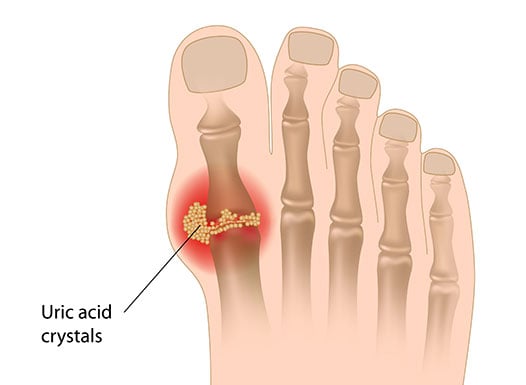Conversely, when the uric acid cannot be efficiently excreted, such as is the case with many kidney diseases or due to many medications that interfere with this process of excretion. This is particularly a concern with diuretics, which remove water from our body at the expense of other products such as uric acid. Rarely, a person is born with a defective step in uric acid metabolism, whereby gout develops at a young age, sometimes associated with a very strong family history of early and aggressive gout.
When the uric acid level is high in the circulation it is termed Hyperuricaemia. This situation is also strongly associated with obesity. It is believed that fatty tissue enhances the production of uric acid. Hyperuricaemia is part of the ‘metabolic syndrome’, which is associated with an increased risk of heart attacks and strokes.
We also obtain purine amino acids from our diet. It is estimated that 10-15% of our purine load is dietary in origin. Foods that are high in purine include offal, seafood (in particular crustaceans), red meat, and alcohol.




